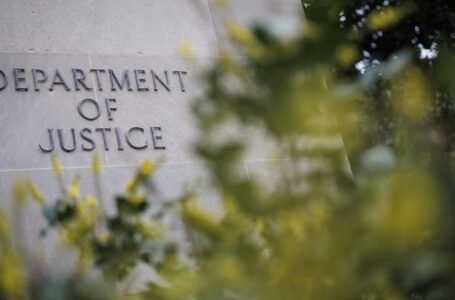Rail accident kills 12 in western India after passengers jump onto tracks over fire alert
Grief and fury on Israel’s streets, as hostage killings pile pressure on Netanyahu to secure ceasefire deal


From bustling Tel Aviv to the southern Israeli city of Eilat, tens of thousands of Israelis took to the streets in one of the biggest nationwide protests since the outbreak of Israel’s war on Hamas as they called on Prime Minister Benjamin Netanyahu to secure a ceasefire-for-hostages deal.
Anger at Netanyahu – who has been accused of stalling efforts for a deal by some hostage families and their supporters – reached a boiling point Sunday as protesters responded in fury to the news that another six captives had been found killed in Gaza. Israel’s largest labor union called for a general strike on Monday and threatened to shut down the “entire Israeli economy.”
The details of their deaths fueled anger that was palpable across the country as protesters blocked highways, waved Israeli flags, and chanted, “we won’t abandon them” in reference to the more than 100 hostages, including 35 believed to be dead, being held in Gaza, according to data from Israeli Prime Minister’s Office. The vast majority of those hostages were taken during Hamas’ October 7 attack on Israel, when some 1,200 people were killed and more than 200 taken captive.
In Tel Aviv, a group of protesters stood behind a mock cemetery while holding signs saying “named after Benjamin Netanyahu,” as they cast blame on the prime minister for the deaths of the hostages.
Later in the evening, the police fired a water cannon filled with foam at protesters blocking a highway in the city – prompting demonstrators to chant, “Officer, who are you keeping safe?”
In Tel Aviv, crowds were visibly emotional; many shouted “sorry” as the names of the six hostages were recited on a loudspeaker during the protest, which organizers said was the biggest since the start of the war.
In Jerusalem, protesters called for Netanyahu to resign as the government held a cabinet meeting. Eden Kramer, who attended the rally with a toddler in a stroller, said she was also demonstrating for the child’s future. “We hope everyone will come out today to bring a message to the government: We can’t keep up like this anymore,” she said.
Deal thrown into question
The discovery of the six hostage bodies has thrown negotiations for a deal into question.
Skepticism has mounted over Netanyahu’s willingness to strike one given fierce opposition from far-right ministers in his coalition. The Israeli prime minister’s political future largely depends on his far-right coalition partners – several of whom have already threatened to leave the government and cause its collapse if he agrees to the deal.
During a cabinet meeting on Sunday, Israeli Defense Minister Yoav Gallant lambasted the Israeli government for what he said was prioritizing control of a key border area known as the Philadelphi corridor over a deal to free hostages, calling it a “moral disgrace.”
The Philadelphi corridor, a 14-kilometer (8.7 mile) stretch that runs along the border between Gaza and Egypt, is currently controlled by the IDF. The deployment of Israeli troops along the corridor during the first phase of a ceasefire agreement has been a major point of contention between Israel and Hamas, with Hamas saying Israeli troops must withdraw from the border zone. Netanyahu says control of the corridor is needed to prevent Hamas from resuming arms smuggling through tunnels underneath it.
Gallant, who has increasingly found himself isolated within Netanyahu’s cabinet on the issue of a hostage deal, warned his colleagues Sunday that “if we continue on this path, we won’t manage to achieve the goals that we set for ourselves.”
He added, “If we want the hostages alive, we don’t have time.”
A senior US official said the killings of the hostages called into question how serious Hamas is about reaching a deal as three of them were set to be released as part of the ceasefire agreement.
“US officials had been working on a final package together with Qatar and Egypt. The package included Hersh (Goldberg-Polin) and a number of the hostages who were just executed,” the senior US official said Sunday.
“This calls into question Hamas’ seriousness about a deal, even as pressure also builds on Israel and Netanyahu personally.”
The “situation is complicated,” the source said. There are currently no in-person joint negotiations with the parties, but the source said discussions continue through the regular channels.
‘In a downward spiral’
Israel’s far-right Finance Minister Bezalel Smotrich has asked the country’s attorney general to request urgent injunctions to prevent the planned nationwide strike on Monday.
In a letter addressed to Attorney General Gali Baharav-Miara, Smotrich argued that a strike would hurt the economy during wartime and set a dangerous precedent. The attorney general’s office has not yet commented on the request.
He had earlier instructed the finance ministry’s salary department to pass on a directive that anyone who joins the strike on Monday will not be paid.
The chairman of Israel’s largest trade union, known as Histadrut, warned on Sunday that the country was “in a downward spiral, and we don’t stop receiving body bags.”
Arnon Bar-David, who called for the strike, told a press conference that “only a strike would shock, and that’s why I’ve decided that starting tomorrow at six in the morning, the entire Israeli economy will shut down.”
He added that the strike would include the shutdown of Ben-Gurion Airport. In a statement, Ben-Gurion Airport said it would be “open for flights and landings on Monday, September 2.”
The Hebrew University of Jerusalem said it would join the strike, which it described as a “response to the tragic news of the murder of our student Carmel Gat, along with five other Israeli hostages.”
Gat, a 40-year-old occupational therapist, was taken by Hamas from her parents’ home in the border kibbutz of Be’eri in southern Israel on October 7.
A spokesperson for the university said the shutdown would be more extensive than previous measures taken since the beginning of the war, such as a partial strike in June.





![Trump re-designates Iranian-backed Houthis as terrorists: ‘Threaten[s] security of American civilians’](https://infinitewealthtips.com/wp-content/uploads/2025/01/trump-houthis-800x450-9XuFRq-455x300.jpeg)





